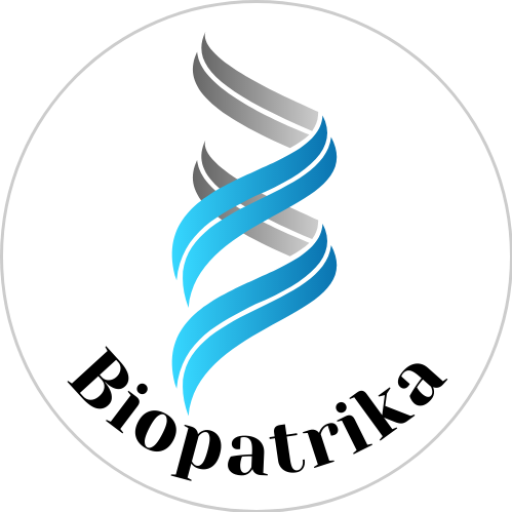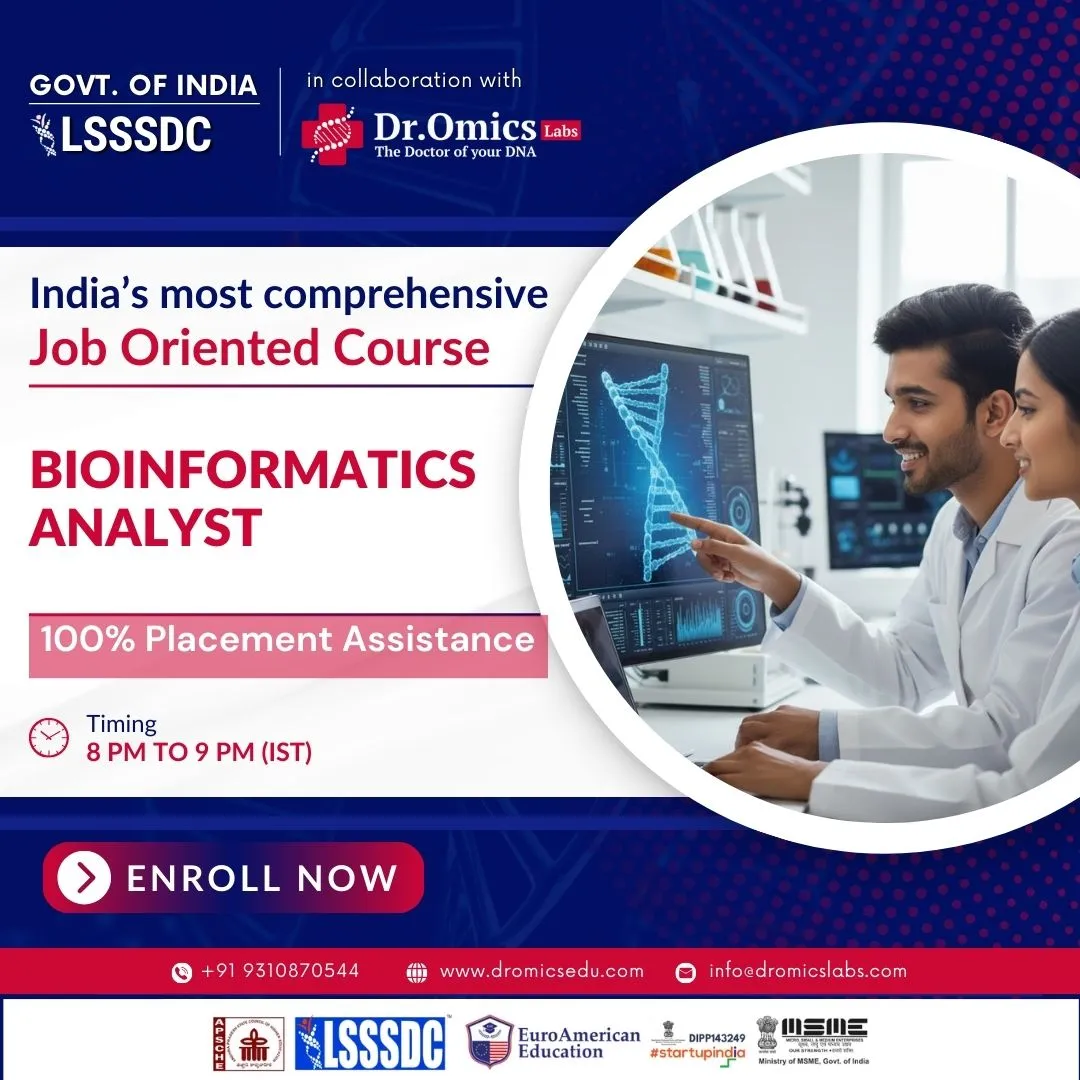Ayurveda Biology
Campus Konnect is an initiative by BioPatrika aimed at bridging the gap between students, faculty, and the broader scientific community. Through this platform, we explore academic programs, research initiatives, and campus experiences, providing valuable insights for aspiring students and researchers. By engaging directly with faculty members and students, Campus Konnect brings forth stories that highlight institutional strengths, innovative programs, and career opportunities.
In this Campus Konnect edition, we feature a compelling conversation with Dr. Jyothish Nair, an MSc Life Sciences (Ayurveda Biology) graduate from The University of Trans-disciplinary Health Sciences and Technology (TDU), Bengaluru. He is now working as a Scientist at Vaidhyarathnam Ayurveda Research Institute, Kerala.
Student Interview 3: Dr. Jyothish Nair, Scientist at Vaidhyarathnam Ayurveda Research Institute, Kerala.
Join us as we dive into Dr. Jyothish’s academic and professional journey — from being a BAMS graduate to becoming a researcher integrating Ayurveda with modern science. This interview offers a glimpse into how the Ayurveda Biology program at TDU bridges traditional knowledge with scientific validation.
🔬 Key Highlights of the Interview:
– Why Dr. Jyothish chose MSc Ayurveda Biology after BAMS
– The growing relevance of traditional medicine post-COVID
– Structure and curriculum of the TDU Life Sciences program
– Research thesis on Tinospora cordifolia (Guduchi) and its role in rheumatoid arthritis
– Transition from theory to lab-based research as an Ayurveda student
– Industry-readiness and career prospects after graduation
– Importance of interdisciplinary training and research collaborations
💡 Watch the full interview to gain insights into this unique career path and the impact of interdisciplinary research!
Link to YouTube video: https://youtu.be/hn4dZjgpkD0
More details about the TDU MSc Ayurveda Biology program here: https://www.tdu.edu.in/courses/m-sc-life-sciences-ayurveda-biology
TDU Social media Twitter/X | Linkedin | Facebook | Instagram
BioPatrika: www.biopatrika.com
SciKonnect: www.scikonnect.com
Job portal: https://jobs.scikonnect.com/
Social media
Linkedin: https://www.linkedin.com/company/biopatrika/
Twitter/X: https://twitter.com/biopatrika
Instagram: https://www.instagram.com/biopatrika/
📌 Subscribe to Biopatrika for more inspiring stories from emerging scientists and researchers! 🔔
#CampusKonnect #Biopatrika #AyurvedaBiology #PhDAbroad #LifeSciences #TDU #RIKEN #InterdisciplinaryResearch
Full Interview
🎤 Host: Virender Singh, Founder – SciKonnect & Biopatrika
🎙️ Guest: Dr. Jyothish Nair
VS: Can you introduce yourself? What was your educational background before joining TDU?
JN: My name is Dr. Jyothish. I am an Ayurveda physician. I graduated from PN Panikkar Ayurveda Safrada Medical College, Kasaragod, in 2020 with a Bachelor of Ayurveda Medicine and Surgery (BAMS). After that, I joined TDU in 2021 and completed a two-year Master’s in Life Sciences, specializing in Ayurveda Biology. Currently, I am working as a scientist at Vaidhyarathnam Ayurveda Research Institute, Taikadeshwari, Thrissur, Kerala.
VS: You pursued a Master’s after BAMS, which is an unusual career path. What motivated you to join this program that integrates Ayurveda and Life Sciences?
JN: Initially, after my BAMS, I was preparing for the All India Entrance Exam for MD in Ayurveda and took a year to prepare. However, during the COVID lockdown, I observed a significant shift toward traditional medicine in Kerala and across India. The government was providing Ayurveda medicines as preventive measures, and people were highly interested in traditional remedies due to the absence of a vaccine or a standard treatment for COVID-19.
However, this interest also led to debates, with some allopathic doctors and researchers claiming that the overuse or misuse of traditional medicine could lead to organ damage. Some even labeled Ayurveda as a pseudoscience, causing confusion among the public.
This made me realize that Ayurveda needs to be backed by strong research and evidence-based studies to be globally accepted. We need trained professionals who understand both Ayurveda and modern science. While searching for such courses, I found TDU’s Master’s program in Life Sciences – Ayurveda Biology through a WhatsApp group. That’s how my journey began.
VS: Can you briefly explain the structure of this two-year course? What coursework and thesis work were included?
JN: The program is structured into two parts. The first year and initial three months of the second year are focused on academics and lab work at TDU. The final eight months are dedicated to thesis research, where students can explore opportunities outside TDU.
The coursework includes subjects like biochemistry, molecular biology, cell biology, genetics, immunology, ecology, local health traditions, and Ayurveda fundamentals. Each semester has around six to eight subjects, along with practical lab work. Since many Ayurveda students are new to lab techniques, we were trained in basic experiments like DNA/RNA isolation, protein estimation, and enzymology before advancing to more complex studies.
For the thesis, we had the flexibility to choose our research topic and institute with guidance from TDU faculty. I chose Pune University’s School of Health Sciences, specifically the Center for Complementary and Integrative Medicine, where I was supervised by Dr. Girish Tillu and Dr. Agash Sagam. My research focused on cell culture studies of Tinospora cordifolia (Guduchi) and its effects on rheumatoid arthritis cell lines (SW982). The experience was invaluable, not only in terms of experiments but also in networking and academic exposure.
VS: It’s great to hear that the thesis was a core part of the program. Was there flexibility in selecting research topics and institutions?
JN: Yes, the program was quite flexible. We could search for institutes and topics and then discuss them with the faculty, who guided us based on our interests. For instance, students interested in pharmacodynamics could explore Pune University, while those inclined toward bioinformatics could opt for IGIB in Delhi. The selection process was interview-based, ensuring students were matched with suitable projects. One of my classmates, for example, conducted his thesis at Banaras Hindu University.
VS: Since you came from a BAMS background, how did you adapt to lab-based research? How did faculty and peers support you?
JN: Lab work was completely new to us, but we were aware of what was coming. The initial six months were challenging as we had to balance theory, lab work, and assignments. However, faculty provided structured learning, and our batchmates from biotechnology and botany backgrounds helped us understand basic concepts before moving on to hands-on experiments.
We received practical exposure to DNA/RNA isolation, protein estimation, enzymology, and pharmacognosy. The hands-on approach ensured we learned by doing, rather than just observing. Within six months, we became comfortable with lab techniques and started integrating modern scientific concepts with Ayurveda.
VS: Now that you are working in the industry, which requires different skill sets, how has this program helped in your transition?
JN: The program equipped me with essential research skills, critical thinking, and a scientific approach to Ayurveda. My current role as a scientist involves evidence-based research on Ayurveda formulations, and the interdisciplinary training at TDU has been immensely helpful. The ability to understand and apply modern scientific techniques in Ayurveda is crucial in today’s research-driven environment.
Moreover, the exposure to external institutions and networking opportunities during the thesis period helped me build connections that are beneficial in my professional journey.
VS: That’s fantastic. Thank you, Dr. Jyothish, for sharing your experience. Your journey from BAMS to research scientist is inspiring, and I hope it encourages more Ayurveda professionals to explore research-driven careers.
JN: Thank you, sir. I hope this discussion helps aspiring students understand the potential of integrating Ayurveda with modern science.
More details about the TDU MSc Ayurveda Biology program here: https://www.tdu.edu.in/courses/m-sc-life-sciences-ayurveda-biology
Campus Konnect by BioPatrika is committed to showcasing institutions, faculty, and students who are shaping the future of science and education. We invite more universities, research institutes, and faculty members to be part of this initiative and highlight their programs, innovations, and campus stories. If you would like to feature your institution in Campus Konnect, reach out to us—we’d love to share your journey with the wider scientific community!
YouTube – Campus Konnect
Email – biopatrika.in@gmail.com




